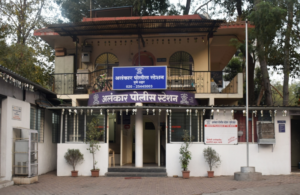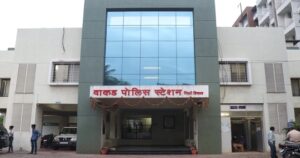Why Smart Cities Need Smart Citizens
- Shankar, National Director & Head (Operations) – Strategic Consulting, JLL India
Without smart citizens, the Smart City proposals will hold good only for documentation – not implementation
Traditionally, initiatives like Smart City are indicators of developed economies. A developing country will become a successfully developed country when its citizens also upgrade and update themselves. In India, the Smart City initiative is in full swing, with the top 20 smart cities stepping into the next stage of implementation. The Smart City mission focuses on the technology overlaying the basic infrastructure that will be built in right places and in sufficient quantities in the cities.
However, the most vital aspect – the citizens who live and work in these cities – must be integral to the implementation process as well. The success of Indian Smart Cities is firmly vested in Smart Citizens.
A smart citizen is one who has civic sense and respects the law. Some of unanswered questions about Smart Cities as far as citizen participation is concerned are:
- Will people obey the traffic rules, drive within speed limits and desist from jumping signals?
- Will they put pedestrians first and leave space for them?
- Will they respect elders and give way to senior citizens?
- Will they park their vehicles at designated lots and not anywhere else?
- Will they maintain hygiene not only their flats but also in the common areas of their apartment complexes?
- Will they throw garbage only in bins and practice source segregation during garbage disposal?
Awareness about smart solutions plays crucial role in developing true smart citizens. Though the local authorities of our smart cities will make substantial investments in smart solutions, they cannot skimp on efforts to raise citizen awareness on the efficient usage of these solutions and services.
For example, energy saving cannot be achieved merely with smart meters in the home. In order to reduce energy consumption and save money on bills, consumers need to not only monitor their energy use but also make an effort to change the whole family’s daily energy usage behaviour. This would include shifting to energy-efficient appliances, reducing TV time and switching off electrical appliances when not in use, especially during peak periods.
A smart city connects people with their environment and city to create more efficient and optimal relationships between available resources, technology, community services, and events in the urban fabric. This connection is a tool that links the implementation of the smart city and the proposed technology.
JLL India’s Strategic Consulting team advocates citizen participation as the major success factor in implementing the smart solutions in a city, and successfully demonstrated this while preparing the proposal for Bhubaneshwar and Chennai (among the top 20 smart cities, with Bhubaneshwar ranked #1). The aspects to be followed to make the Smart City mission successful through Smart Citizens across India:
Ø Citizen Participation: Most of developed cities ensure that citizens participate in every aspect from cleaning to safety requirements. Citizen participation ensures citizen satisfaction, which in turn ensures maximum efficiency of the proposed technology. Good governance is always measured by the extent to which it involves its citizens in the overall decision-making process.
In an increasingly complex world, citizens’ inputs are a critical resource for policy-making. Good decision-making requires the knowledge, experiences, views and values of the public. The participation of citizens has become simpler through online Government portals. Such participation reduces the conflict of opinions and makes implementation easier. Smart citizens need to be fully inclusive, innovative and sustainable.
Ø Joint Engagement Of Citizens And Government: Political will and the technical capacity to engage citizens in policy making, or providing accurate data on government performance, are the hallmarks of developed democracies. Though making policies for a city’s growth and comprehensive development is important, a smart city acknowledges that policies alone are not enough to reach their goals. It solicits support from its citizens and local stakeholders to make this happen.
Citizens are called upon to jointly take responsibility and engage in the process. Building social capital is essential to ensure that smart citizens acquire the capabilities and skills to meet the challenges of the future. Only then does a city become ‘future ready’.
Ø Technology Support: Technology has given the world new dimensions; globally, citizens are becoming technology-oriented in every aspect concerning their comfort, convenience and safety. Technology support has become an essential factor for the growth of a city and its citizens.
The use of innovative information and communications technology (ICT) applications, smartphones and smart fixtures are all part of the process of making smart citizens. When city dwellers use the Internet to make smarter, more informed choices, cities become smarter too. The right approach towards the Smart City mission involves a balance between technological and non-technological approach.
The ICT platform is the best tool to bridge the current gap between the Government and citizens. The Smart City concept necessarily emphasizes the inclusion of ICT solutions as part of its entire proposal. Going forward, such a system will be robust and sustainable. There are lot of apps and online platform available to facilitate citizen participation, some of which are the Swachh Bharat Clean India mobile app, IPaidABribe.com, Safecity India,Next Bengaluru and Kumbhathon. Cities become more dynamic by the use of such platforms.
Already, the Government has launched the necessary tools to help citizens participate proactively in Smart City mission. These include street campaigning, education programmes in schools and colleges, media advertisements and hoardings, consultation programmes with Government officials, online participation etc.
MyGov.in is an excellent example of ICT integrating and increasing the efficiency of citizen engagement. All policy-level decisions will directly involve citizens’ opinions. This platform will make the system more transparent and act as an interactive forum between citizens and the Government. It allows citizens to post their comments and suggestion on any proposal and also includes different types of participation (i.e., voting, raising public awareness, advocating for an issue, monitoring political processes) that will best promote democratic development in different contexts. It is a technology that is created to purposefully connect citizens’ groups and amplify their voices.
In addition, private technology developers are continuously exploring smart technologies from smart mobiles to smart furniture and appliances, marketing them at affordable prices to reach to all categories of people. This not only helps in cost saving but also connecting with globally-employed smart technologies. Moreover, specially formed societies in residential colonies and corporate companies across India are now taking up initiatives like cleaning the neighbourhood, roads and water bodies, tree plantation, electronic waste recycling, etc. This is the kind of motivation required of citizens to participate in taking the Smart City initiative.
To ensure a greater share of online participation channels such as through smartphone applications and social media, municipalities needs to invest in smart people – not merely in smart technologies. Only then will tools like smartphones and mobile applications have the potential to revolutionize city governance and contribute to the making of people-centric Smart Cities.








